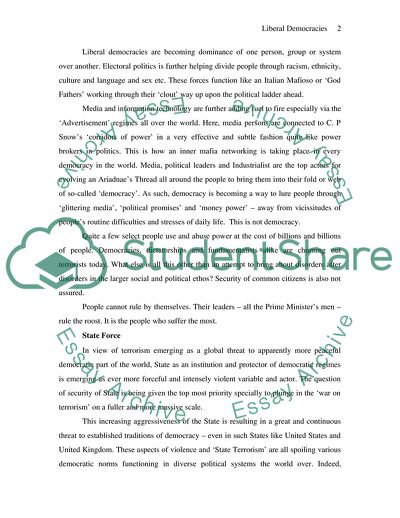Cite this document
(How Much Democratic Are the Liberal Democracies Coursework, n.d.)
How Much Democratic Are the Liberal Democracies Coursework. Retrieved from https://studentshare.org/politics/1718643-question-2-how-democratic-is-liberal-democracies
How Much Democratic Are the Liberal Democracies Coursework. Retrieved from https://studentshare.org/politics/1718643-question-2-how-democratic-is-liberal-democracies
(How Much Democratic Are the Liberal Democracies Coursework)
How Much Democratic Are the Liberal Democracies Coursework. https://studentshare.org/politics/1718643-question-2-how-democratic-is-liberal-democracies.
How Much Democratic Are the Liberal Democracies Coursework. https://studentshare.org/politics/1718643-question-2-how-democratic-is-liberal-democracies.
“How Much Democratic Are the Liberal Democracies Coursework”. https://studentshare.org/politics/1718643-question-2-how-democratic-is-liberal-democracies.


